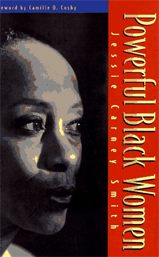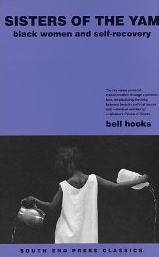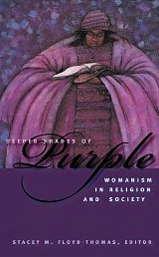Lectionary Commentaries

MOTHERíS DAY
LECTIONARY COMMENTARY
Sunday, May 12, 2013
Stacey L. Edwards-Dunn, Guest Lectionary Commentator
Executive Minister, Trinity United Church of Christ, Chicago, Illinois
Lection Ė Hosea 11:1-9 (New Revised Standard Version)
(v. 1) When Israel was a child, I loved him,and out of Egypt I called my son.
(v. 2) The more I called them,
the more they went from me;
they kept sacrificing to the Baals,
and offering incense to idols.
(v. 3) Yet it was I who taught Ephraim to walk,
I took them up in my arms;
but they did not know that I healed them.
(v. 4) I led them with cords of human kindness,
with bands of love.
I was to them like those
who lift infants to their cheeks.
I bent down to them and fed them.
(v. 5) They shall return to the land of Egypt,
and Assyria shall be their king,
because they have refused to return to me.
(v. 6) The sword rages in their cities,
it consumes their oracle-priests,
and devours because of their schemes.
(v. 7) My people are bent on turning away from me.
To the Most High they call,
but he does not raise them up at all.
(v. 8) How can I give you up, Ephraim?
How can I hand you over, O Israel?
How can I make you like Admah?
How can I treat you like Zeboiim?
My heart recoils within me;
my compassion grows warm and tender.
(v. 9) I will not execute my fierce anger;
I will not again destroy Ephraim;
for I am God and no mortal,
the Holy One in your midst,
and I will not come in wrath.
I. Description of the Liturgical Moment
The Black mother, whether biological, adopted, or mother by circumstance, has been the cornerstone of the black family and the black community as she has survived all types of adversity such as forced labor, beatings, bombings, rape, lynching, and a holocaust that was intended not to kill her but to rape her of her dignity, determination, and personhood. She raised babies that were hers and not hers, cooked foods that fed our souls and the multitudes, navigated menopause and mid-life crises, wiped her childrenís tears and sat down on the bus, watched her men be killed and her children being sold, walked the thin line between sanity and insanity as she gave so much of herself and sometimes failed to experience love in return.
On Motherís Day, we take specific time to honor our mothers. We honor those mothers, young and old, unmarried or married, who have given birth to children biologically and those who have served as the mothers to children they did not give birth to but has given life to. It is on Motherís Day that we honor their gifts, presence, faith, sacrifice, strength, silent tears, accomplishments, and their love. Our mothers are one of the greatest gifts from God to us.
II. Biblical Interpretation for Preaching and Worship: Hosea 11:1-9
Part I: The Contemporary Contexts of the Interpreter
I have to admit that I been blessed with a beautiful gift, my mother, ďMamaĒ as I affectionately call her. From the moment I was born, my mother has loved me, nurtured me, inspired me, imparted wisdom to me, cried with me, worried about me, educated me, sacrificed for me, gave to me, mentored me, listened to me, walked with me, and ushered me into a relationship with God. A woman of great faith, a fabulous cook, and an amazing homemaker, my mother was not only a mother to my brothers and sisters, all of whom she taught to cook, sew, and take care of ourselves, but she also served as a mother and mentor to other women including my foster sisters and children of the community. I recognize that not all children have had the opportunity to experience the love, embrace, and nature of the one called mother. Thus, I do not take for granted the blessing that I have in my mother who has served as a rock and a cornerstone in my life since birth. The blessing of being mothered well cannot be overstated.
If I were preaching on Motherís Day, Iíd consider the following:
Possible Sermon Titles
- The Power of a Mamaís Love
- A Motherís Unfailing Love
- When Mama Was God
- Never Forget Mama
- Mama Never Quits
Possible Sermon Moves/Points
When Mama Was God:
1. She gave her love at birth
2. She carried your burdens
3. She had your back
Mama Never Quits:
1. Loving You
2. Teaching You
3. Challenging You
Never Forget Mamaís
1. Love for You
2. Mercy for You
3. Hope for You
Part II: Biblical Commentary
In our text for today, Hosea writes about having been mothered by God. Hosea, whose name means salvation, is the writer of the first book of the Minor Prophets. The book was written in the 8th century B.C., during the reign of Uzziah in Judah and Jeroboam II in Israel, as well as during the time when Jotham, Ahaz, and Hezekiah were kings over Judah. Scholars suggest Hoseaís prophetic ministry covered more than seventy years, during which time he directed warnings and passionate pleas directly toward the house of Israel to get them to repent and return to God. The Israelites had made alliances with foreign powers and participated in corrupt worship of idol gods which resulted in a lack of integrity, disobedience, and violated their commitment to and covenant with the Lord.
Hosea sets up this section of his prophecy by calling attention to Israelís early history. He reminds Israel that despite their present condition of rebellion against God, God nevertheless would not abandon them. God would love them with an enduring love, a suffering love, the kind of love that a parent has for a child.
The narration of such a profound love takes place through a backwards glance to the story of Israelís exodus from ancient Egypt and perhaps more distantly still, to the story of Abrahamís call to leave Ur of the Chaldees (cf. Gen. 12). In recounting the exodus saga, Hosea conjures imagery of God as the loving parent who has always cared for Israel. In fact, Israelís existence as a people is not rooted in biology or blood. It is rooted in this call, a call that brings them into existence as a people. Ancient Israel is a people whose very life is rooted in the call of God, which gives them life. This call of God is a call of love.
Reflecting on the historical account of Godís deliverance of the Hebrews out of Egypt, Hosea opens chapter eleven with an image that offers readers a glimpse of Godís relationship with Israel as a parent to the children of Israel (v. 1). It is easy for a reader of the Western world to interpret this text from a patriarchal perspective and assume that the parent is a father speaking to a child. However, close inspection of the text implies awomanís care. That is to say, in this text, one can find the Divine laying aside fatherly attributes and exhibiting the unyielding, faithful, and enduring love of a mother who is hurt and sorrowed by her childís disobedience, rebellion, and bad decisions.
For instance, in verse 3, Godís goodness is expressed toward a child as a mother or a caregiver. Additionally, verse four utilizes language that many would think describes the strength of strong man lifting or carrying a child. However, it was most often the role of a mother to feed a child in the Hebrew home. These two instances and others throughout the text not only give witness to a motherís love, but also point to the maternal character of God in our lives as witnessed in the manner in which our mothers care for us.
- Godís long memory of where weíve been and where we are now displays how far-reaching is the love of God for us.
- Godís calling us out of the places of bondage that would seek to confine us and Godís showing us a new purpose display the parental love of God for us.
- Godís coming alongside us, as does a parent, to guide in how to walk and healing or picking us up when we fall, patching up the bruises and the many deep wounds to our sense of selfóall this displays the parental and motherly love of God for us.
- Godís sticking by us even when we donít give God due acknowledgment, just as we often donít give the mothers in our lives acknowledgment for what they doóthis too displays the motherly love and affection of God for us.
In verses 5-7, we find God angry as God announces that Israel will be punished for its faithlessness and will become enslaved to the Assyrians as they were in Egypt. Yes, even mothers are angered by bad, disobedient behavior. But, be clear, this is not Godís doing; as a mother would be apt to say, they (Israel) made this bed and now they get to sleep in it.
However, this text reminds us on Motherís Day that mothers are witnesses of God in our midst, witnesses of the faithfulness of God. In the many displays of motherhood today, we have before us pointers to Godís divine and redeeming, Godís protective and covenantal parentage and motherhood. The mothers in our midst, in our expanded understanding of motherhood, display the veritable motherhood of Godóyou mothers before us today are a revelation of Godís fidelity or faithfulness and Godís indomitable and restoring love. From you we get a glimpse of Godís even greater parental care and provision and love for us all today.
- We can rest assured that, like a parent, no matter where weíve been or what weíve been caught up in, God fundamentally is a God who embraces and receives us. God will not let us suffer destruction.
- We can rejoice that Godís ultimate and final judgment is the judgment of mother-affirming love.
- In fact, God will even have a change of heart so that we can repent (have a change of heart).
Although they must pay the consequences for their actions, verses 8-9 reveal to us a change in the heart of God. Verse 9 states that God cannot carry out Godís anger toward Ephraim and destroy them because God is our mother! Thus, in spite of Godís anger and disappointment, God closes out verse 9 by offering a hope and restoration for Israel once they have experienced their punishment. Like God, as a result of their love, black mothers experiences have often been escorted by pain, disappointment, and frustration. However, like God, because of the love that runs deep in their veins, they have still been able to see the greater possibilities in us and offer us hope for our future.
Celebration
What do we learn from Hoseaís story about the divine gift of mother loveóa mother-love and a divine-love that we see displayed by Godís love in Hoseaís prophecy? We discover in this story a love that just wonít quit, a love that wonít give up. Itís a boundless love. A restoring love. A compassionate love. Itís a mother love, a love that is far stronger than the chords of biology. Itís the kind of love that God as Creator has for us, Godís creation. Itís a love that reaches us in the depths of the dark night of difficulty and despondency.
Itís the love of God with Us. The God who is with us in the darkness and from that place grants us a new glimpse of Godís glory. Itís the love of God with Us. And with this love weíre granted to see that God has not abandoned us and that because God has not abandoned us, God is still with us.
This Motherís Day, we remember our mothers who loved us, gave birth to us, gave us life, carried us, and gave us hope. Mothers who did not listen to the world say that we were 3/5 of a person or worthless because our skin had been kissed by natureís sun. No, these mothers saw something greater in us and a greater future for us. Mothers such as Rosa Parks sat down for us. Mothers like Harriet Tubman freed us. Mothers like Sojourner Truth stood up for us. Mothers like Mary McLeod Bethune educated us. Today, we praise God for our mothers who have overwhelmed us with their love, gave us hope, and were always on our side, just as was our Savior, Jesus Christ. Thatís Godís word to us today this Motherís Day.
Descriptive Details
The descriptive details of this passage include:
Sights: A mother with her hands on her hips; a child walking; a proud mother; a mother picking up a child; dust; a child engaging in bad behavior;
Smells: The smell of sweat; burned incense; and
Sounds: A crying baby; an infant stumbling when learning how to walk; children eating; a mother raising her voice.
III. Additional Resources for Preachers
Books
 |
Carney Smith, Jessie. Powerful Black Women. Detroit: Visible Ink Press, 1996. |
 |
hooks, bell. Sisters of the Yam: Black Women and Self-Recovery. Boston: South End Press, 1993. |
 |
Floyd-Thomas, Stacey M., ed. Deeper Shades of Purple: Womanism in Religion and Society. New York and London: New York University Press, 2006. |
Music
- Dear Momma by Tupac Shakur
- Mamma Loves Me by Jay Z
- A Song for Mama by Boys to Men
- No Greater Love by Fred Hammond
Poems
- Still I Rise by Maya Angelo
- The Mother Poem by Mitchell M. Gissendanner
- Mother to Son by Langston Hughes
- The Negro Mother by Langston Hughes
Movies
- Soul Food
- For Colored Girls
Quotes about Mothers
Mama was my greatest teacher, a teacher of compassion, love and fearlessness. If love is sweet as a flower, then my mother is that sweet flower of love.| óStevie Wonder |
My mother never gave up on me. I messed up in school so much they were sending me home all the time, but my mother sent me right back.
| óDenzel Washington |



